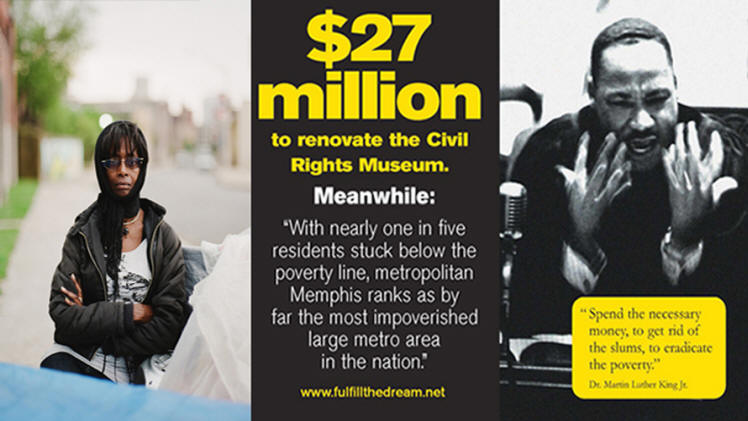|

Jacqueline Smith: A Dream Denied
(March 6, 2014)
I first met the ever-vigilante street protestor Jacqueline
Smith during September 1977, at the historic Lorraine Motel
in Memphis. I had accompanied my father to a meeting on
nearby South Main Street and had soon become bored. I
decided to begin exploring the surrounding neighborhood and
as a white teenager in segregated Memphis, I was somewhat
out of my element.
I curiously wandered over to take a look at the run-down
Lorraine Motel and Smith, the manager of the property,
graciously invited me to take a look at Room 306.
Smith showed me the room that Dr. Martin Luther King
occupied on April 4, 1968, and gave me a brief history
lesson on the Motel. As a budding historian, I was somewhat
disappointed that the room had been stripped of its
furnishings and turned into a memorial for the Lorraine’s
owner’s deceased wife. I remember asking if the room’s
telephone was original, which Smith stated it was. I then
placed the phone’s receiver to my ear in some slight attempt
to reconnect with the room’s history.
During the early eighties, I came back a couple of times to
take photos and always made it a point to stop by the office
to visit with the engaging Smith. She continued to serve as
a proud ambassador to the history and legacy of Dr. King at
the still functioning little motel. During that time period,
the Lorraine mostly housed poor and homeless Memphians.
Smith’s guardianship of the Lorraine soon came to an abrupt
end as the City of Memphis and the non-profit museum
foundation took over the property. She was very vocal in her
opinion that Dr. King would rather spend the money on the
poor than on an extravagant museum. In 1988, the city
disagreed and had her forcibly removed by police officers
from her barricaded residence at the motel.
The National Civil Rights Museum opened to the public on
September 28, 1991, with Smith posted across the street
urging visitors to boycott the museum. She has maintained a
vigil on her street corner outpost ever since the eviction
26 years ago. Smith states publicly that the money used to
fund the museum should have been used to transform the
Lorraine into a homeless shelter, drug rehabilitation center
and job-training facility. She firmly believes that is what
Dr. King would have wanted and she continues her non-violent
protest to bring attention to her message.
Over the years, I have stopped by occasionally to chat with
Jacqueline Smith and contribute financially to her tireless
struggle. Last week, I took my nephew and his wife to the
museum for a visit. While they toured the gift shop (the 22
year-old museum is closed for a $27 million dollar
renovation) I visited with Smith. “Dr. King wanted to die
without a penny to his name. He wanted to give all his
possessions to the poor,” emphatically stated Smith “does
this museum do anything to help the poor, no. We live in one
of the impoverished cities in American and yet we can spend
$27 million dollars on changing the exterior of a building
and adding a sign. This is not what Dr. King believed.”
Following the message of Jacqueline Smith, I once again had
managed to visit the Lorraine and again had refused to enter
either the building or its expensive gift shop.
|